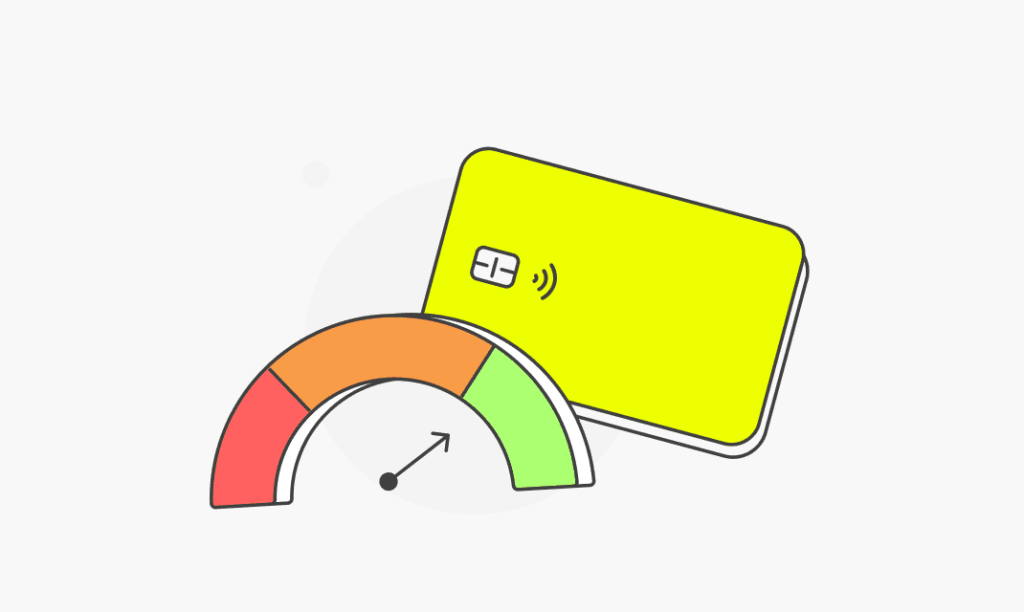Credit cards can be powerful tools when managed wisely. Whether you’re aiming to build your creditworthiness or simply want to enjoy the convenience of cashless spending, mastering the art of responsible credit card use and boosting your credit score is essential.
Anúncios
Proper management involves developing a set of habits that prevent debt accumulation while simultaneously enhancing your credit profile. In this guide, we’ll share effective tips for using credit cards responsibly to further improve your score in the US. Understanding these strategies can help you optimize your financial health and secure better terms on loans and other financial products.
Understanding your credit score

Your credit score is a reflection of your financial behavior and plays a crucial role in determining your creditworthiness. In the United States, several factors contribute to this all-important number, including your payment history, the amount of debt you owe, the length of your credit history, the mix of credit accounts, and recent inquiries.
Anúncios
Knowing how these elements affect your score can empower you to make better financial decisions. As you embark on the journey to improve your credit standing, understanding your score’s mechanics will set you on the path to success.
Payment history is one of the most significant factors, representing about 35% of your FICO score. Regular on-time payments show lenders you are reliable. The amount owed, or your credit utilization ratio, accounts for 30% and reflects your debt levels relative to credit limits.
Keeping this ratio below 30% indicates you are wisely managing your available credit lines. The length of your credit history, making up 15% of your score, underscores the importance of maintaining long-standing credit accounts.
Monitoring your credit report
Regularly checking your credit report is an essential step in using credit responsibly. Begin by obtaining a free report from the three major credit bureaus—Equifax, Experian, and TransUnion—at least annually. By reviewing your report, you can spot inaccuracies or unfamiliar accounts that could adversely impact your score. Errors on your reports may appear more frequently than you might think, and addressing them promptly is key to maintaining an accurate credit profile.
Resolving discrepancies is usually a straightforward process. Contact the bureau displaying the error, provide the necessary documentation, and follow up to ensure corrections are processed. Monitoring your report helps you stay on top of your financial status and alert to any changes that could require your attention.
Utilizing tools to track spending
Keeping a close watch on your spending habits is vital when managing credit. Developing a budget helps you ensure that your expenditures do not exceed your income. Numerous apps and tools are available that automatically categorize transactions, showing you exactly where your money is going. These tools provide transparent insights into your spending patterns, empowering you to make informed adjustments as needed.
Setting up alerts on your credit card accounts can also help you catch unusual charges or recognize when you’re nearing your credit limit. Real-time alerts keep you informed, enabling you to take swift action when necessary. Moreover, they provide a timely reminder to keep spending aligned with your budgetary goals, thus avoiding overspending and accumulating undesirable debt.
Strategies for effective credit card usage
Maintaining a low balance-to-limit ratio on your credit cards is one of the most effective ways to use credit responsibly. This involves keeping your credit utilization below 30% of your available credit, signaling to lenders that you handle your credit prudently. A lower utilization rate shows you’re not overly reliant on credit, positively influencing your score over time.
Ensuring that you pay your credit card bills in full each month is another prudent financial practice. This not only helps you avoid interest charges but also reinforces a positive payment history, a significant component of your credit score. If paying the full balance isn’t feasible, at least make the minimum payment to avoid late fees and negative reporting to credit bureaus.
Taking advantage of rewards and perks
Credit cards often offer rewards programs and perks, which can be highly beneficial when used correctly. Look for cards that offer bonuses and incentives that align with your spending habits. Rewards may include cash back, travel points, or discounts on specific purchases. By carefully selecting a card, you can maximize the benefits you gain from everyday spending.
To make the most out of rewards, understand the terms and conditions of your credit card’s program. This knowledge lets you strategically channel your spending to areas that offer the highest return. However, avoid the temptation to overspend just to earn rewards, as this can lead to unnecessary debt.
Setting clear financial goals
Establishing clear financial goals is integral to responsible credit usage. Determine what you want to achieve—whether it’s paying down existing debt, saving for a major purchase, or reaching a certain credit score. Clear, actionable goals provide direction and a sense of purpose, serving as a roadmap for your financial journey.
Once goals are set, create a detailed plan that outlines how your credit card fits into your broader financial strategy. Set realistic deadlines and milestones to track your progress, adjusting your approach as necessary to keep moving towards your objectives. This level of planning ensures that every swipe of your card aligns with your end goals.
Having specific targets in mind fosters discipline and motivates you to maintain responsible spending habits. Moreover, achieving these goals often positively impacts your credit health, allowing you to reap the long-term benefits of a high credit score. Clarity in goal-setting thus serves as an anchor in managing credit cards with purpose and prudence.
